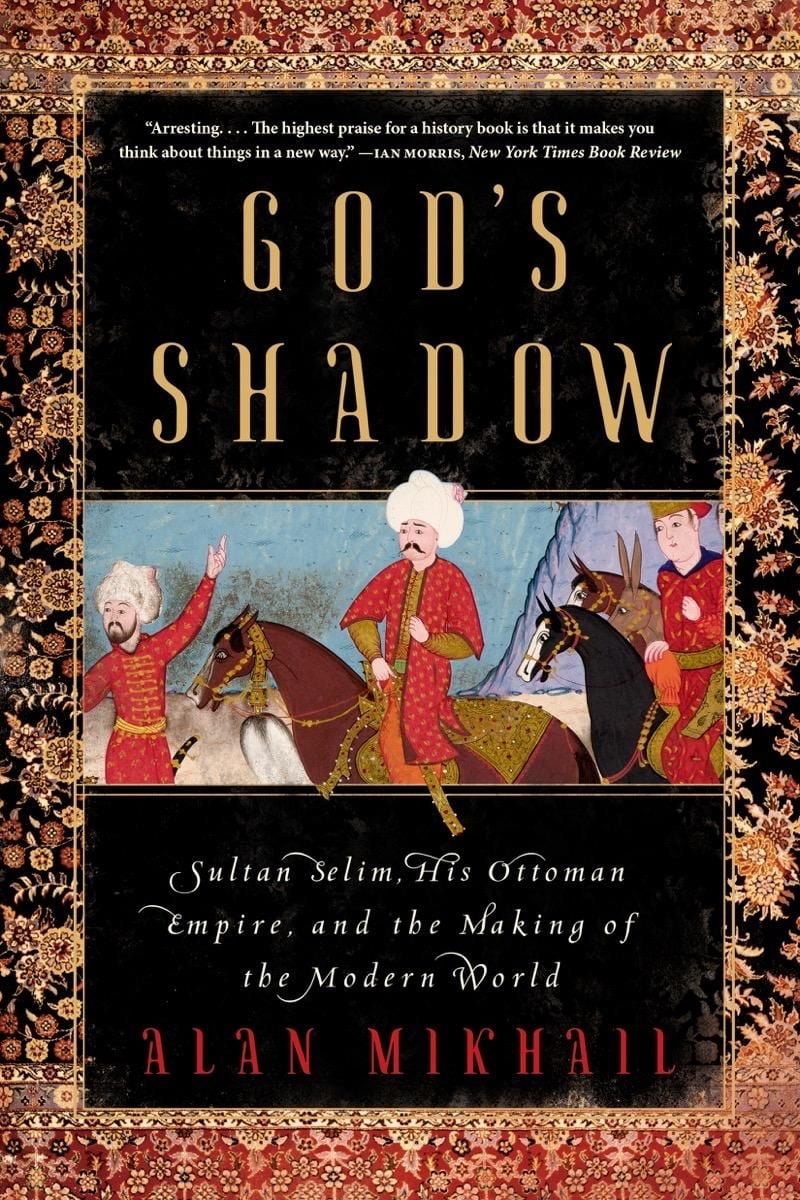|
God’s Shadow: Sultan Selim, His Ottoman Empire, and the Making of the Modern World
By Alan Mikhail Published in August 2020 496 Pages Thibault’s Score: 3/5 Sultan Selim the Grim of the Ottoman Empire only reigned for about 8 years. Despite his short reign, he completely transformed the Ottoman Empire - growing its territory by about 70%. Selim the Grim and his son Suleiman the Magnificent’s reigns mark the peak of the Ottoman Empire. Selim would expand the Ottoman Empire over the course of two major wars: one against the Safavid Persian Empire where he would seize a small but economically important piece of territory, and the other against the Egyptian Mamluk Empire where he would seize all of North Africa and Arabia. This book doesn’t focus on Selim as a person, which makes it far more interesting. Instead, it focuses on the history of the Ottoman Empire in general during Selim’s childhood, his own reign, and the reign of his son. I hate it when books go into the minutia of historical figures, and was pleasantly surprised that this book spent far more time exploring the world that Selim inhabited rather than Selim’s personal life. If anything, this book strays too far in the opposite direction, going into extremely lengthy tangents about Spanish colonization of the new world, and Persian trade with India. I found many of the tangents to be interesting; but many more to be distracting and unnecessary. I would say that at least a third of the book are tangents that don’t directly relate to the reign of Selim. Some were fascinating, such as the ones that describe how the Spanish explorers misidentified native americans as Ottoman Turkish Muslims; and others such as the political intrigues of Charles the V (who never interacts with Selim, even indirectly) were quite boring. The Ottoman Empire was, by far, one of the most brutal and authoritarian states of the early modern era. Alain Mikhail, like many other modern authors, tends to downplay the authoritarian tendencies, sexual violence, and degeneracy of the Ottoman Empire. This might be because our modern political circumstances make it dangerous to criticize Islam, or because historians who study a given field tend to view that subject with rose-tinted glasses. Mikhail briefly touches on the extreme brutality and genocidal horrors perpetrated by the Ottoman state; but then dismisses them and goes on to describe how tolerant Ottoman society was. Compared to contemporary societies such as those in the Italian city states, previous societies such as the Abbasid Caliphate, or the Byzantine Empire, the Ottoman Empire is at best equally bad. This book was quite boring at times, and was by no means a page turner. I recommend it to people who have already read other books about the Ottoman Empire and want to go deeper; but would not recommend it to most ordinary readers.
0 Comments
|
Thibault SerletMost of my articles are book reviews, but I also write about many other topics. Archives
December 2023
Categories |

 RSS Feed
RSS Feed